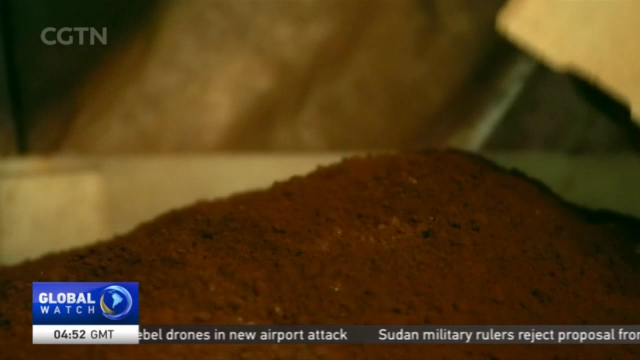
13:26, 14-Jun-2019
Rare Earth: Lack of rare earth minerals may affect everyday life
Updated
17:29, 09-Jul-2019

Rare earth minerals are widely used in modern industry. Oil production, permanent magnet materials, and some magnetic applications all use them. CGTN's Li Jianhua visited a factory that manufactures permanent magnet products in the central Chinese city of Ganzhou, a place with abundant rare earth resources.
You're looking at Praseodymium and Neodymium alloys. They may sound technical, but are widely used in your daily life.
Melted under high temperatures, together with other metals and elements, they are forged into these thin plates.
They are then fed into a huge grinding machine to be made into powder, which is ground into even smaller particles in these pots.
Now they are ready to be whipped into permanent magnet products that you likely use.
Zhu Ming has been in the business for over 20 years.
ZHU MING, SENIOR ENGINEER JIANGXI YG MAGNET CO., LTD "This product is mainly used as a core component of new energy vehicles' motors. If they don't use the material, the energy consumption will be very high. The development of new energy vehicles is currently limited to their battery capacity. The rare earth permanent magnet material can facilitate the industry's development."
Rare earth permanent magnetic products are also widely used in other devices, including speakers, mobile phones, planes, and military equipment to enhance their performance and reduce size.
Located in a place abundant with rare earth materials, Ganzhou city alone – according to business insiders – has about 40 companies making rare earth permanent magnet products, and its supply chain is more mature.
ZHU MING, SENIOR ENGINEER JIANGXI YG MAGNET CO., LTD "China provides a large quantity of rare earth particles globally, which stimulates innovation and more investment compared to other countries. The supply chain is not replaceable by any other county."
Figures show China's rare earth reserves account for nearly 40 percent of the world's total.
And China's production of rare earth minerals in 2018 accounted for 70 percent of the world's production.
Official figures show China's rare earth exports in the first five months of 2019 were less than 20-thousand tons, dropping by over seven percent compared to the same period last year.
GAO FENG, SPOKESPERSON CHINESE COMMERCE MINISTRY "China has created regulations on issuing rare earth export licenses since 2011, but there has been no limit as for numbers and qualifications of these licenses. Other than that, there are no other regulations regarding their exports."
Some big importers of China's rare earth minerals include Germany, Japan and the US. Chief among them, 80 percent of the US's imports of these minerals came from China from between 2014 and 2017.
WANG CHANGLIN, EXECUTIVE PRESIDENT CHINESE ACADEMY OF MACROECONOMIC RESEARCH "If some countries or companies make use of our rare earth resources to make some high-end tech products, and - in the meantime – suppress China's development, this will definitely hurt Chinese people's feelings."
Bloomberg earlier quoted an expert as saying China could wreak havoc on American industries if it limits exports of rare earth materials to the US.
LI JIANHUA GANZHOU, JIANGXI PROVINCE "Rare earth minerals are widely used in modern society – from military defence equipment, to your home appliances, to your cars, and even to the mobile phones you use in daily life. You don't see them, but without them, we'd be in trouble. LJH, CGTN, GANZHOU, JIANGXI PROVINCE."
SITEMAP
Copyright © 2018 CGTN. Beijing ICP prepared NO.16065310-3
Copyright © 2018 CGTN. Beijing ICP prepared NO.16065310-3